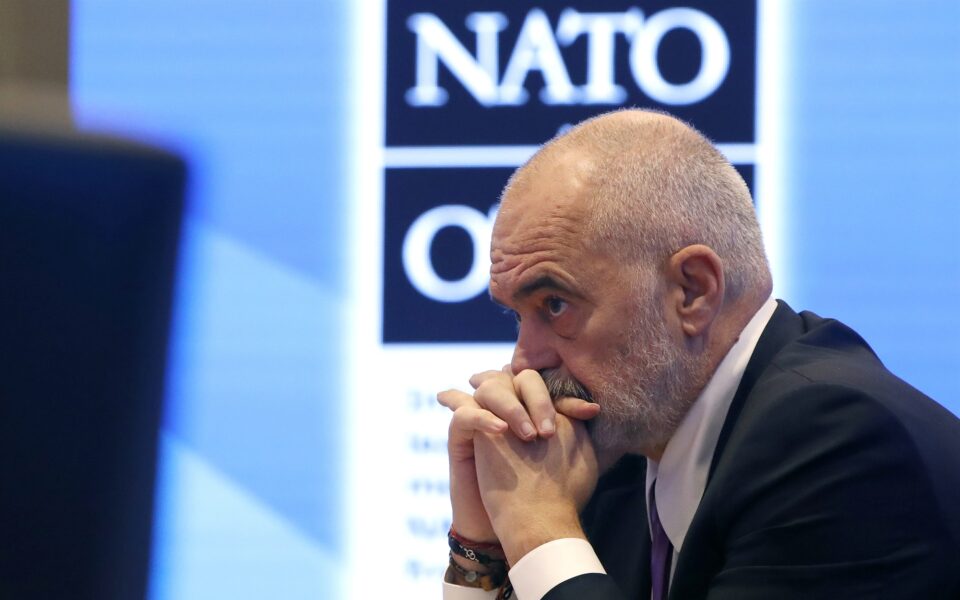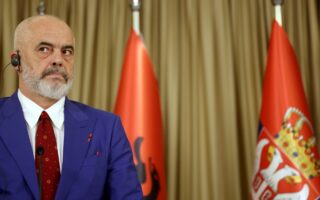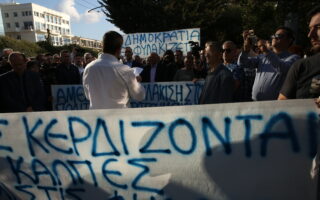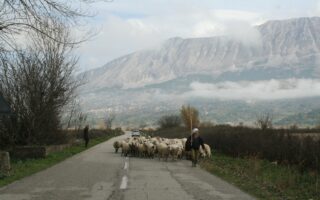Why is the West banking on Rama?

Judgment time is near for the jailed mayor-elect of the ethnic-Greek Albanian town of Himare, as the special corruption court responsible for hearing his case convenes on Tuesday to the crux of the matter. This means ruling on whether Fredi Beleri is guilty of vote-buying. It is the same court that last week rejected his request for a few hours’ leave so he could take his oath of office, either inside or outside prison.
Beleri has 15 days to appeal the decision, though the possibility that it will be overturned is scant to none. He will most likely not be sworn in as mayor, and this is something that is expected to weigh against him in the upcoming trial. So, all eyes are now turned to Tuesday’s proceedings, where the Albanian prosecutorial authorities will have to back their claims with evidence that is much more compelling than anything we have seen so far.
In the event that Beleri is found guilty, he has the right to take recourse to the appeal court and then to Albania’s Supreme Court. However, a conviction on his criminal record will mean that he will not be able to run in the new election that Albanian Prime Minister Edi Rama has said he intends to call, so as to wash his hands of the “Himare case,” which he has turned, for all intents and purposes, into a personal feud with Beleri.
Without Beleri, the ethnic Greek minority will have to pick a new candidate, with his son’s frequent appearances in the media recently creating buzz of his being a likely runner. But the community may also choose to abstain from the process, which would worsen relations with Tirana even further and have an impact on Greek-Albanian ties, already strained by the affair.
For Rama, the court’s decision to keep Beleri from being sworn in is obviously evidence that he has won the first round in the tug-of-war with the Greek side. He also appears confident that Tuesday’s trial – whose outcome is considered a given by anyone with knowledge of Albanian affairs – will mark the end of Beleri’s political career.
The Greek veto
Athens’ warning that it will exercise its veto rights to prevent European Union accession talks between Brussels and Tirana from beginning does not seem to have daunted the Albanian prime minister one bit in his vendetta against Beleri. Rama seems, in fact, to have adopted a defiant stance against European urgings for a resolution on the issue, saying, “Even if the European Council were to turn itself upside down, we are not open to any negotiations that go against Albania’s strategic interest, which is the implementation of justice reform and safeguarding the independence of its institutions of justice.” His intransigence has been further strengthened by German Chancellor Olaf Scholz’s reference to the issue being a “bilateral dispute” and not related to EU demands concerning the rule of law in the accession process.
But where does all this love for Rama come from? Why are the Europeans and the Americans willing to throw Greece under the bus when it’s their most important and most reliable ally in Southeastern Europe? The Albanian prime minister appears to have done a good job convincing them that this is a bilateral issue, a simple criminal case that is for the country’s justice system alone to handle and that this justice system is indisputably independent. He never misses an opportunity, either, when commenting on the Beleri affair, to remind the Europeans that Albania’s prosecutorial service, courts and police aspire to the standards set by Europe and that he has no right to interfere.
The big picture
Beyond the “small picture” related to the case against Beleri, however, there is a “big picture” in which Rama is viewed as the favored interlocutor of the EU and the US in the Western Balkans. The wily prime minister continues to project himself as the leader who can guarantee domestic political stability and Albania’s Western orientation. Mainly, though, he casts himself as an influential politician with the leadership qualities needed to control the dangerous developments in troubled Kosovo, as per the West’s desire, and, more generally, with the ability to manipulate secessionist trends among 7 million ethnic Albanians living in the Balkans.
Everyone understands that without Tirana and Belgrade, that is, without Rama and Serbian President Aleksandar Vucic, there is little hope of improvement in the situation in Kosovo. It may not say so out loud, but the West also sees in Rama a pro-European prime minister who despite his excellent relations with Turkish President Recep Tayyip Erdogan is shielding Albania from Islamization and from its transformation into Turkey’s bridge to the Adriatic Sea. He has, after all, demonstrated that he will do what is asked of him. Such as, for example, agreeing to Italian Prime Minister Giorgia Meloni’s scheme for Albania to host a few thousand migrants and refugees trying to reach Europe from Africa.





